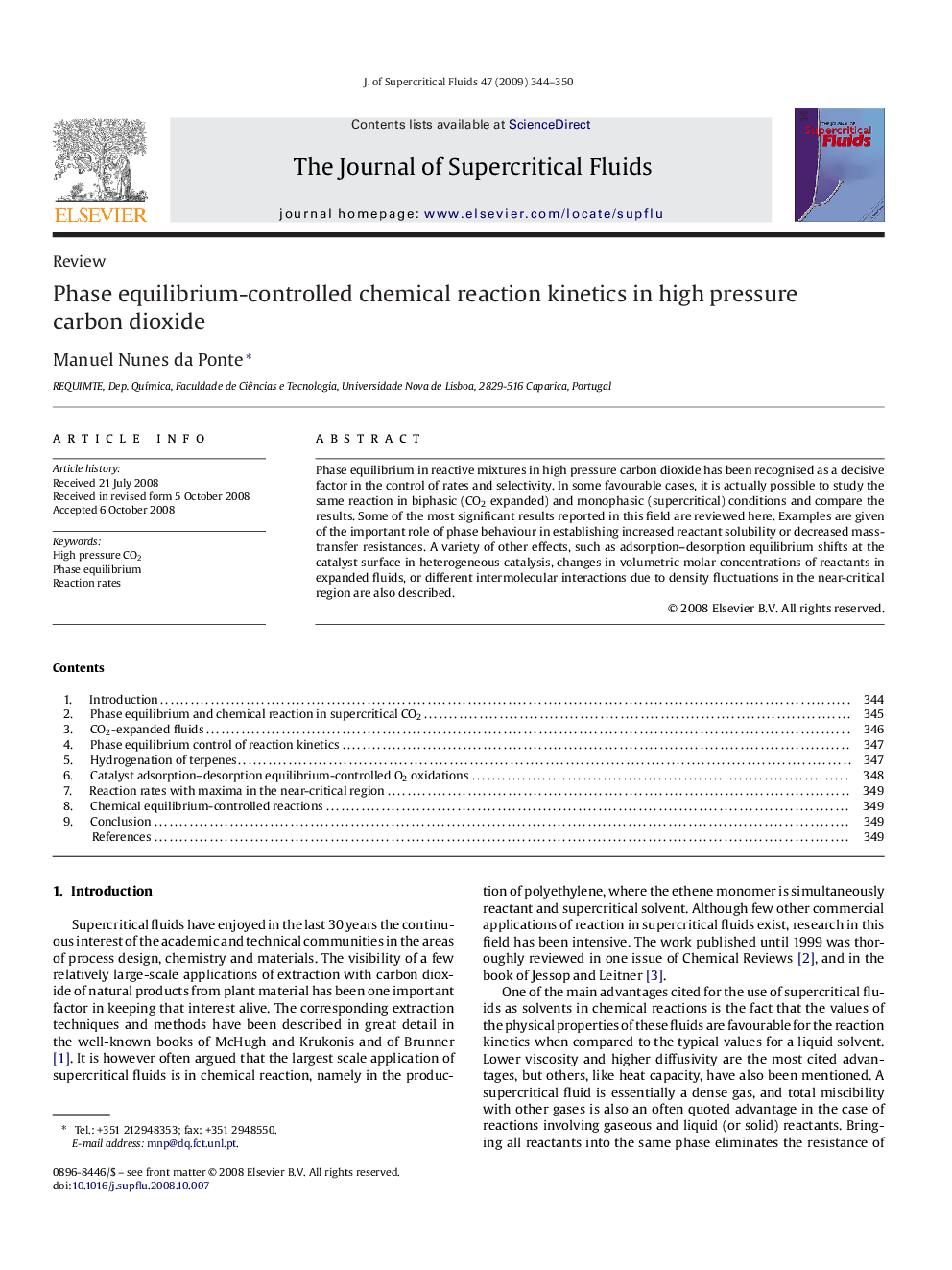| Article ID | Journal | Published Year | Pages | File Type |
|---|---|---|---|---|
| 231694 | The Journal of Supercritical Fluids | 2009 | 7 Pages |
Phase equilibrium in reactive mixtures in high pressure carbon dioxide has been recognised as a decisive factor in the control of rates and selectivity. In some favourable cases, it is actually possible to study the same reaction in biphasic (CO2 expanded) and monophasic (supercritical) conditions and compare the results. Some of the most significant results reported in this field are reviewed here. Examples are given of the important role of phase behaviour in establishing increased reactant solubility or decreased mass-transfer resistances. A variety of other effects, such as adsorption–desorption equilibrium shifts at the catalyst surface in heterogeneous catalysis, changes in volumetric molar concentrations of reactants in expanded fluids, or different intermolecular interactions due to density fluctuations in the near-critical region are also described.
Graphical abstractPhase equilibrium in reactive mixtures in high pressure carbon dioxide is a decisive factor in the control of rates and selectivity. Comparisons for the same reaction between biphasic (CO2 expanded) and monophasic (supercritical) conditions reveal a complex variety of different ways by which this influence can be felt.Figure optionsDownload full-size imageDownload as PowerPoint slide
